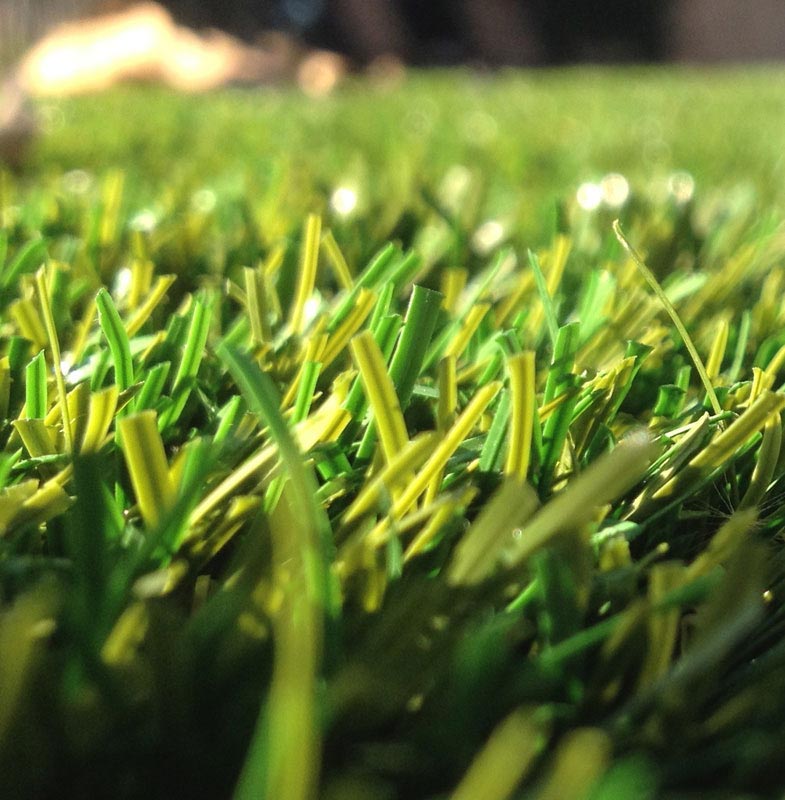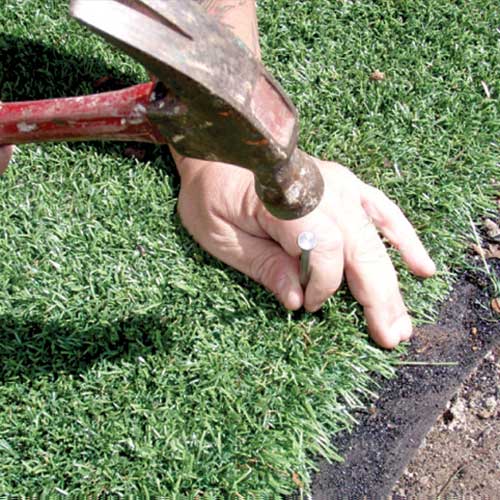Well-Known Phoenix Turf Companies Offering High-End Synthetic Grass Installation
Wiki Article
Explore the Environmental Conveniences of Opting for Artificial Turf Solutions
The fostering of synthetic grass options presents an engaging possibility to address pressing ecological difficulties. By substantially decreasing water use and reducing the application of damaging chemicals, these choices not just advertise lasting landscaping however likewise secure local communities. In addition, the lower carbon impact associated with decreased upkeep tasks adds to a more sustainable strategy to land administration. Nevertheless, the implications of these advantages extend past plain preservation initiatives, questioning concerning their long-lasting effect on habitat conservation and overall environmental balance. Exploring these dimensions reveals a complex interplay worth considering.Water Conservation Advantages
Among one of the most significant advantages of synthetic grass is its capability to save water. Standard lawn yards call for substantial irrigation, especially in areas prone to drought or water restrictions. On the other hand, man-made grass does not require watering, significantly minimizing the general need for water resources. This function is especially advantageous in deserts where water deficiency is a pushing issue.By removing the requirement for regular watering, man-made turf contributes to lasting landscape practices and assists minimize the environmental influence of excessive water usage. The conservation of water prolongs to the reduction of overflow, which can lead to soil erosion and river pollution.
Furthermore, the installation of synthetic turf permits homeowners and communities to assign water sources extra efficiently, focusing on vital uses such as alcohol consumption water and agriculture. The change in the direction of synthetic grass not just advertises liable water usage however likewise aligns with broader environmental goals targeted at protecting natural resources.
As communities progressively prioritize sustainability, the water conservation advantages of artificial turf present an engaging instance for its fostering in industrial and property landscape design tasks.
Lowered Chemical Usage
The change to synthetic grass considerably decreases the dependence on chemical therapies commonly utilized in natural lawn maintenance. Traditional lawn monitoring normally includes the application of plant foods, chemicals, and herbicides to promote growth and control insects. These chemicals can position threats to human wellness, neighborhood wildlife, and the setting, contributing to dirt and water contamination.In comparison, synthetic lawn gets rid of the demand for these dangerous substances. Once installed, it requires marginal upkeep, mainly including routine cleaning and seldom infill replenishment. This reduction in chemical use not just profits the instant environment yet also adds to broader eco-friendly stability. By decreasing the launch of synthetic compounds right into the ecosystem, synthetic grass advertises healthier soil and water systems.
Moreover, the lack of chemical drainage related to synthetic turf installations aids protect regional waterways from pollution, sustaining marine life and maintaining biodiversity. Turf installation phoenix az. As neighborhoods increasingly prioritize sustainable techniques, going with synthetic grass provides a feasible option that straightens with environmental preservation objectives. Through this shift, homeowner can enjoy lush environment-friendly areas without endangering eco-friendly wellness, leading the way for a much more lasting future
Lower Carbon Impact

Additionally, the setup of synthetic grass can result in significant water conservation. Natural yards call for considerable quantities of water for watering, which not just includes in the carbon footprint connected with water extraction and therapy yet additionally strains neighborhood water resources. On the other hand, synthetic grass requires minimal upkeep, needing no watering, consequently significantly lowering water use and its associated energy prices.
Additionally, the durability of synthetic try this web-site grass contributes to its decreased carbon impact. With a lifespan of approximately 15 years or more, the requirement for regular replacements is decreased, resulting in less waste and reduced power intake in production and dealing with typical yard options. Generally, synthetic turf offers a sustainable option for eco mindful landscape design.
Environment Conservation
Environment conservation is an essential consideration in the debate over landscape design choices, particularly when comparing fabricated lawn to all-natural lawn. All-natural grass lawns often need comprehensive maintenance, including making use of fertilizers, pesticides, and herbicides, which can adversely influence neighborhood ecosystems. These chemicals can leach into the soil and waterways, damaging native plants and fauna and interrupting local habitats.
On the other hand, man-made lawn offers a possibility to lower the eco-friendly impact of landscape design. By selecting synthetic turf, homeowners can lessen the disruption of all-natural environments connected with traditional lawn treatment techniques. Synthetic grass removes the requirement for damaging chemicals, consequently securing nearby wild animals and maintaining the stability of surrounding environments. Moreover, the installment of man-made turf can result in the conversion of former grass areas into even more biodiverse landscapes, such as pollinator yards or indigenous plant locations, which can sustain regional wild animals.
Ultimately, the transition to man-made turf not only preserves water and lowers maintenance initiatives yet likewise cultivates an extra harmonious partnership in between human tasks and the native environment, advertising habitat conservation while doing so.
Long-Term Sustainability
Long-term sustainability is a vital consider assessing the benefits of synthetic grass over traditional lawn yards. Among the most significant advantages of man-made lawn is its toughness; it can last approximately 15-20 years with marginal upkeep, whereas natural yard calls for constant reseeding and substitute. This longevity lowers the demand for continuous sources, such as water, fertilizers, and chemicals, which are vital for keeping a healthy grass yard.In addition, synthetic grass adds to a decrease in carbon discharges right here linked with yard treatment tools. Standard lawns commonly need gas-powered mowers, trimmers, and blowers, all of which add to air contamination. Artificial turf companies phoenix. On the other hand, artificial turf removes the need for such tools, advertising a cleaner pop over here environment
Moreover, the production of man-made lawn increasingly makes use of recycled products, improving its sustainability account. As suppliers take on environmentally friendly practices, the ecological impact of artificial grass remains to lessen.

Verdict
The fostering of synthetic grass options offers significant environmental benefits, consisting of considerable water conservation, reduced reliance on hazardous chemicals, and a reduced carbon footprint. Moreover, artificial grass aids in maintaining all-natural habitats by minimizing land disturbance and advertising long-term sustainability through using durable materials. Collectively, these variables underscore the potential of synthetic grass to contribute positively to ecological wellness and provide a practical alternative to typical landscaping practices in an increasingly resource-conscious globe.In comparison, artificial turf does not require watering, considerably minimizing the general need for water sources. By decreasing the release of synthetic compounds into the community, fabricated turf advertises much healthier soil and water systems.
Furthermore, the installation of synthetic grass can result in significant water preservation. In contrast, synthetic lawn requires minimal upkeep, needing no watering, thus considerably decreasing water use and its connected energy prices.

Report this wiki page